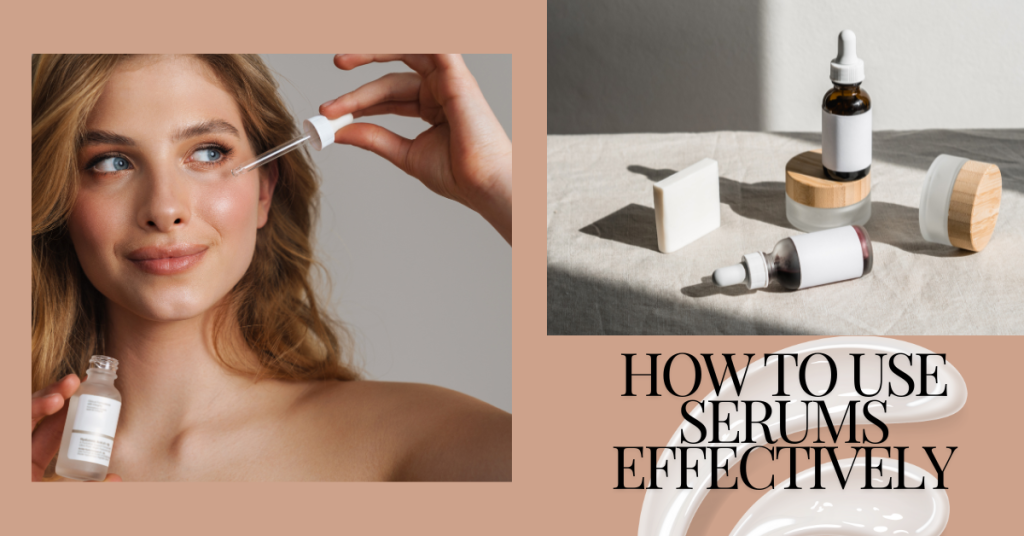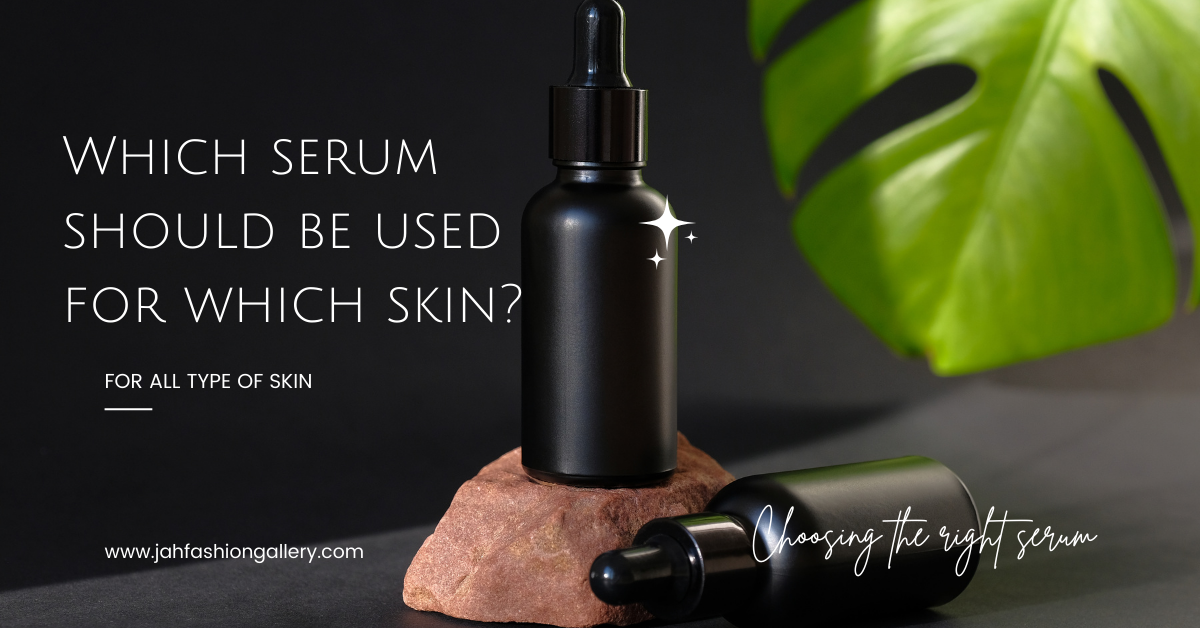Which serum should be used for which skin?
Choosing the right serum for your skin can be a game-changer in your skincare routine. With so many options available, it can feel overwhelming to figure out which serum is best suited for your skin type and concerns. From hydrating formulas to serums that target acne, wrinkles, or dullness, each product is designed to deliver concentrated ingredients to address specific issues. But the key to glowing, healthy skin lies in understanding what your skin needs and how the right serum can help. Whether you have dry, oily, sensitive, or combination skin, this guide will help you discover which serum can best complement your skincare goals.
Which Serum for Which Skin?
Let’s explore the best serums for each skin type and concern, incorporating LSI (Latent Semantic Indexing) keywords to ensure clarity and relevance.
1. Dry Skin Serum
For dry skin, hydration is key. The best serums for this skin type often contain:
- Hyaluronic Acid Serum: It attracts moisture from the environment and retains it, making the skin look plump and hydrated.
- Vitamin C Serum: A potent antioxidant that brightens the skin and helps in collagen production.
- Hydrating Serum: These formulas are specifically designed to infuse moisture, leaving your skin feeling supple.
2. Oily Skin Serum
Oily skin requires balance. The right serum will control excess oil without stripping moisture. Look for:
- Niacinamide Serum: Helps regulate oil production and reduce the appearance of enlarged pores.
- Salicylic Acid Serum: Exfoliates and unclogs pores, which is ideal for preventing acne breakouts.
- Pore-Refining Serum: Helps tighten pores, reducing the overall shine of oily skin.
3. Combination Skin Serum
For combination skin, you need serums that address both oily and dry areas. Some great options include:
- Peptide Serum: Boosts hydration while supporting skin elasticity.
- Hyaluronic Acid Serum: Provides hydration without making the oily areas greasy.
- Balancing Serum: Formulated to bring harmony to your skin, balancing moisture and oil production.
4. Sensitive Skin Serum
Sensitive skin requires gentle, soothing ingredients that reduce irritation:
- Antioxidant Serum: Protects the skin from environmental stressors and inflammation.
- Redness Reduction Serum: Contains calming ingredients like chamomile or green tea to soothe and reduce redness.
- Niacinamide Serum: Its anti-inflammatory properties make it suitable for calming sensitive skin.
5. Normal Skin Serum
For normal skin, maintenance is key. Your goal is to keep it balanced and radiant. Recommended serums include:
- Vitamin C Serum: For a bright, even complexion.
- Hydration Serum: Even though your skin is balanced, maintaining moisture ensures a healthy glow.
- Skin Barrier Repair Serum: Helps strengthen the skin barrier to keep your complexion looking smooth and youthful.
6. Acne-Prone Skin Serum
Acne-prone skin needs serums that fight bacteria and prevent future breakouts:
- Salicylic Acid Serum: An essential for clearing out clogged pores and preventing blemishes.
- Niacinamide Serum: Helps reduce acne scars and control oil production.
- Serum for Acne Scars: These formulas work to fade post-inflammatory hyperpigmentation, giving you a clearer complexion.
7. Mature Skin Serum
For aging skin, serums that focus on firming, hydration, and reducing fine lines are ideal:
- Retinol Serum: A powerful anti-aging ingredient that boosts cell turnover and reduces wrinkles.
- Firming and Tightening Serum: Lifts sagging skin and restores elasticity.
- Anti-Aging Serum: Contains ingredients like peptides and antioxidants to smooth fine lines and enhance collagen production.
How to Use Serums Effectively

Now that you’ve chosen the right serum for your skin type, it’s essential to apply it properly to maximize its benefits:
- Cleanse First: Always start with a clean face to allow the serum to penetrate effectively.
- Apply on Damp Skin: For hydration serums, applying on slightly damp skin helps lock in moisture.
- Layering Serums: If you’re using multiple serums, layer from the thinnest to thickest consistency.
- Daytime vs. Nighttime Serums: Some serums, like Vitamin C and antioxidants, are great for daytime use, while retinol and anti-aging serums work best at night.
- Moisturizer and Serum Combo: Seal in your serum with a good moisturizer to lock in hydration and prevent moisture loss.
Conclusion: Find the Best Serum for Your Skin
The world of serums can seem daunting, but knowing your skin type and concerns makes it much easier to find the right one. Whether you’re battling dryness, oiliness, sensitivity, or aging, there’s a serum out there for you. Stick to high-quality, well-formulated products, and you’ll be on your way to healthier, glowing skin.
How do you like the blog? Please give your valuable feedback!!




